Libertarian Social Democracy: The Structure of a Free Society
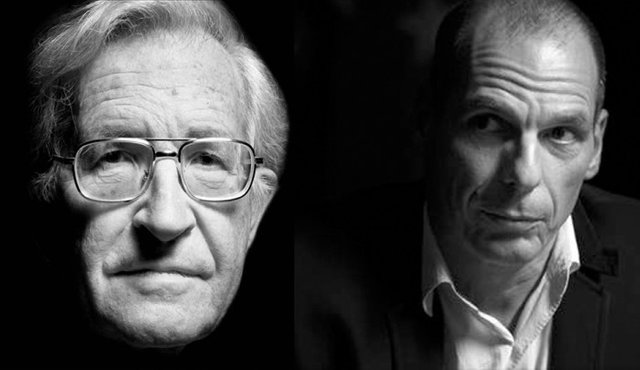
The Shortcomings of Pure Anarchism
For a while, I have been advocating anarchist social democracy as a model of libertarian social democracy. In the last few weeks, I have been drifting away from the sort of purist anarchism that I once advocated. I have read quite a bit of anarchist literature, from Benjamin Tucker to Peter Kropotkin and just about everything in between, so I am not making this departure from anarchism on an uninformed basis. I still agree with anarchist ethics and ideas most of the time, and I do believe that police and the military can and should be replaced by libertarian institutions like those advocated by anarchists.
The State is typically defined as a “monopoly on the legitimate use of physical force in a given territory.” This definition, however, does not actually cover the entirety of the State. In addition to this aspect of the State, there are also administrative, regulatory, and redistributive aspects of the State. While I would like to see the abolition of the former aspect of the State, I don’t really want to see the abolition of the latter aspects. I support Georgist land value taxes, Pigouvian taxes, ecotaxes, cap-and-trade (pollution taxes), etc. I also support universal educational standards. Additionally, I do want a standard currency system. So, my ideal society would end up having a State, although the role of the State would mostly be limited to regulating corporations and the economy rather than dealing directly with individuals. While I would like for the State to stay out of the way of individuals and allow for the greatest possible amount of liberty to all individuals, I would also like for there to be certain national standards for education, healthcare, welfare, environmental issues, etc.
Another problem that I have with anarchist purism is the idea of absolute free association. The idea is that people should be able to freely associate on a totally voluntary and consensual basis. The alternative to this (or possibly the corollary, depending on your interpretation) is consensus democracy. The basic idea of consensus-based democracy is that rules and decisions would only be binding if everyone agreed. As far as I can tell, this seems to be unworkable. People already live in integrated communities, surrounded by people who think differently from themselves. Suppose that there are three neighbors, the first of whom believes in fee-simple property, the second of whom believes in usufructuary arrangements, and the third advocates full communism. The free association model will not work because the community is going to have to come to some mutually agreeable solution that none of them can just opt out of. For instance, suppose that the believer in usufruct decides that he doesn’t like the community's standards, so he breaks into the property of the neighbor who believes in fee-simple and claims the property as his own. Well, the neighbor that believes in fee-simple wants to keep the house as a vacation property. Obviously, they can’t both have their way. And it only gets more complicated when the communist neighbor starts taking all the food from the other two’s gardens and putting all the vegetables in a shed to use as a common warehouse. And this problem only gets worse when you increase the size of your community of three neighbors to some more realistic number. Obviously, not everyone can get their way, and consensus is going to be virtually impossible to reach in large numbers. Additionally, the idea of pure direct democracy seems unfeasible as well. The average person would be happier if the necessary public services (road maintenance, schools, etc.) were taken care of automatically, without them having to take time to attend regular meetings to debate all the finer details of public matters. In any large society, democracy will have to be done on a representative basis, preferably through recallable delegates. However, I’m not so sure that a total imperative mandate will work. A representative or delegate will have to have some leeway for making decisions based upon their perception of what their constituents would find acceptable. The delegate cannot reasonably be expected to go back and consult with his constituents after every council meeting before casting a vote. However, it ought to be extremely easy for the constituents to depose or recall the delegate and replace them, and they should be able to do this for any reason whatsoever. Ultimately, I have come to advocate a more republican form of delegative democracy. The system should be as participatory as reasonably possible and lean towards consensus whenever possible. In order for pure anarchism to work, I think we’d have to go back in time at least a couple hundred years. It seems that the State, or something like it, has really become a historical necessity.
I have also re-evaluated my theory of ethics. I ultimately concluded that there is no such thing as a categorical imperative, which is to say that there is nothing that is good or evil in itself. All moral imperatives are actually hypothetical imperatives. I also came to rank various values in a hierarchy, where the maximization of well-being and happiness is of utmost importance. Liberty is but one of many values that matter; and it is only a value insofar as it tends to help facilitate human happiness. It seems to be reasonable to prefer a society that maximizes social benefits at the expense of a few minor liberties to a society that maximizes negative liberty at the expense of positive liberty. I determined that it is conceivable that a flawed society in which all interactions aren’t entirely “voluntary” might be preferable to a totally voluntaryist society if this flawed society could provide certain more valuable benefits.
Whether or not this is truly a departure from anarchism is debatable. Mikhail Bakunin advocated majoritarian democracy, he and Peter Kropotkin both advocated the use of delegates, Pierre-Joseph Proudhon wanted a sort of central bank, Murray Bookchin opposed consensus processes, and Noam Chomsky recognizes the necessity of some sort of representation and even realizes the need for the regulatory State. Regardless, I am not advocating pure anarchism anymore, and I will likely stop using the term to describe my views. Nevertheless, I still think anarchism is among the most interesting political philosophies and I will continue to encourage people to read up on the subject.

Where I Differ From Most Minarchists
I am not quite an anarchist, but I'm not sure that “minarchist” is the right word either. I think the "monopoly on legitimate force" aspect of the State should be abolished. So, my position on legislation, law-enforcement, and national defense is essentially anarchistic, based largely on a mixture of ideas borrowed from Pierre-Joseph Proudhon, Peter Kropotkin, Josiah Warren, Benjamin Tucker, Gustave de Molinari and Murray Bookchin. The State, for the most part, should have nothing to do with positive law, law-enforcement, security, or national defense. However, the administrative, regulatory, and redistributive aspects of the State might be useful, in my opinion. While I do advocate a very libertarian “minimal State,” I hesitate to call my model minarchy because it is actually the inverse of what minarchists generally propose. Minarchists generally have a right-libertarian approach and wish to abolish the regulative and administrative aspects of the State while preserving (but strictly limiting) the legislative, policing, and defense aspects of the State. My position is the inverse of that. It is precisely the aspects of the State that most minarchists wish to preserve that I would like to abolish or alter most.
Laws could be made through a more anarchic system of participatory democracy, through delegates, with the option of the people to directly veto laws passed by the legislature. Law-enforcement could be done through communal police, chosen by lottery or sortition and on a rotational basis. The protection of persons and their possessions could be handled by organizations that double as security services and insurance agencies, but these agencies should be subject to communal control. Cases involving the violation of a person’s rights, like theft, murder, or assault, could be regarded as criminal cases. Criminal cases would be adjudicated via trial by jury. Cases involving breach of contract or failure to comply with community standards could be regarded as civil cases. These civil cases would go through civil courts, with democratically elected arbiters or tribunals. All of these proposal, by the way, are proposals drawn from anarchism.
The end result is that I actually disagree with minarchists on everything. Where they oppose the State, I am for it. Where they are for the State, I am against it. I am a dialectical libertarian, which has led to me advocating a sort of dialectical minarchism that is the inverse of right-libertarian minarchism.
Some Core Concepts
Comprehensive Counterbalanced Democracy: Replacing the non-democratic checks-and-balances of typical republican systems with more democratic checks. There are various forms of democracy: direct democracy, consensus democracy, deliberative democracy, digital democracy, etc. Considering the multitude of democratic options, it seems feasible to use other forms of democratic processes as checks on democratic institutions. For instance, community rules could be determined through a process of deliberative democracy at the level of elected delegates. The candidates for delegates could be chosen by lottery or sortition, thereby eliminating career politicians. The delegates would attend deliberative meetings wherein proposals are debated and discussed before making any decision. And the delegate could be recalled and replaced if their constituents are unsatisfied with their service. Furthermore, a layer of digital direct democracy could be implemented as well, allowing the people to directly veto, via online poll, legislation passed by the representatives. You could also have a popularity poll online whereby the constituents could vote on how favorable their view of their delegate is, and automatically remove and replace the delegate when they get an unfavorable rating in the polls. Additionally, voting could be done through ranked-choice voting, eliminating the dilemma of voting for the lesser of two evils.
Local Democracy and Subsidiarity: Decisions should be made in smaller, local communities. Subsidiarity is the principle that every matter should be handled at the most local level possible and by the smallest organization capable of efficiently carrying out the task. I am leaning more towards something akin to the cellular democracy of Fred Foldvary than to the more anarchic models of libertarian municipalism and democratic confederalism advocated by Murray Bookchin and Abdullah Öcalan.
Blockchain-based Algorithmic Administrative State: My ideal society would have a crypto-currency monetary system on a blockchain, with ledgers recording every transaction. The system should incorporate registries that record the assessed value of land owned by each citizen. And this registry should interface with the monetary system. There should be an algorithm that automatically collects a land value tax and progressive income tax and redistributes the money in the form of a citizen’s dividend, thereby providing all citizens with a universal basic income. Taxes for the funding of police and the military should also be collected automatically through this system, and excess government revenue should automatically be redistributed in the form of a citizen’s dividend. Universal health insurance could also be integrated into this automated system.
Regulatory State: My ideal society would preserve the regulatory aspects of the State. There would be something functionally isomorphic to the Environmental Protection Agency, Department of Education, Food and Drug Administration, etc. The Regulatory State would impose national educational standards, set national healthcare standards, regulate corporations in order to protect the environment and the community, etc.
Communal Police: Regular police forces would be replaced by communal police services. The communal police would enforce the rules agreed upon by the community. If the community decided to ban bicycles on sidewalks or set a maximum speed limit, the communal police would deal with enforcing those rules. They might write tickets for violating community rules. However, they would not be in charge of protecting persons and property. General security would be provided by an entirely separate institution. There should also be an entirely separate and independent organization established for the investigation of complaints against officers.
Securance: The protection of persons and property would be the task of communal securance agencies. A securance agency is an organization that would serve as both a security company and as an insurance agency. These agencies would be regulated by the local community. Their task would be to try to prevent crime, through regular patrols, installation of security cameras, etc. If a person were attacked or robbed, the securance company would pay out on an insurance claim for damages in order to recompense the victim. They would pay to replace any stolen or damaged property, etc. They would also investigate crimes and attempt to track down the perpetrator in order to demand restitution for the damages caused. They would arrest and attempt to prosecute the suspect if possible, with the intention of imposing a fine on the criminal in order to get reimbursed for their expenses that resulted from the crime. Securance agents would have to be licensed by the community.
Autonomous Democratic National Guard Confederation: The military should be independent of the State and it should be run on a democratic basis. Soldiers should elect their own superiors. High ranking leaders within the military should have to be democratically confirmed/approved by a communal council of delegates. The military would not be under the control of the State, but rather under the control of the soldiers themselves, but it would be accountable to the regional, provincial, or state level government.

The Blockchain-based Algorithmic Administrative State
So, I advocate the preservation of the State in an altered, libertarian form. The legislative, judicial, and military aspects of the State would be handed over to independent governmental institutions established and controlled on a more directly democratic basis. The characteristic of the State as a “territorial monopoly on the legal use of force” would be eliminated. The State, so defined, would wither away with the establishment of democratic alternatives. Nevertheless, the administrative, regulatory, and redistributive aspects of the State would be preserved.
The key to making this Administrative State libertarian is to automate it as much as possible, in order to reduce human input and intervention, thereby making less room for error and corruption. A large part of the State should be a Blockchain-based Algorithmic Administrative State. There should be a digital currency system with a public ledger, with records of all transactions, debits and credits, to the accounts of all members of society. Each citizen should have an account with a communal bank that runs on a blockchain-based crypto-currency system. Each individual should be limited to one account, verifiable by a combination of a private key (which will replace the citizen's Social Security number), a retinal scan, and/or a fingerprint. Associated with the general ledger there should also be a land registry, which records ownership of land, the assessed value of the land (minus buildings and improvements), and the amount of land owned by each citizen. The general ledger and the land registry should interface and there should be an algorithm in place to control the distribution of wealth. There might also be registries for automobiles, insurance, etc. For instance, universal health insurance could be integrated into the system and the system could automatically recognize and reimburse healthcare related expenses. Something similar could be done with education.
As I have mentioned elsewhere, I would like to see a land value tax, a differential tax on the sale or transfer of land, and a progressive income tax. These taxes should be deducted automatically from citizens accounts according to an established algorithm. People would be taxed on the total money they have (their total income), their land, and on the transfer of land. A person who owns no land would pay no tax upon purchasing land. A person who already owns 10 acres would pay a low tax upon purchase of additional land (say 10%). A person who owns 100 acres would pay a higher rate (say 50%). And the amount would go up. And this differential tax would be due upon transfer of ownership, and if the funds are not available, then the transfer could not take place in the public registry. This would make it impossible to establish a land monopoly and it would guarantee a widespread distribution of the ownership of productive property.
These taxes would raise a lot of money. However, most of this money should not go towards funding the State. Instead, the bulk of the revenue should be divided up and redistributed in an egalitarian fashion to all members of society as a citizens’ dividend. The taxes should be averaged and deducted gradually in the form of small monthly payments, rather than deducted in lump sum. The system would constantly and instantly update with any new information added to an individual's records. And this would be an automatic process, so there would be no need to bill the taxpayer. Instead, you could log on and view your public records to verify that your records are correct, in which case the taxes would be correct, and you could dispute the record in case of any errors.
No one would ever complain of the burden of taxation because (1) taxes would be taken gradually and automatically, making taxation less noticeable, (2) taxes would be progressive, preventing anyone from being unfairly burdened by the taxes, and (3) everyone would also be receiving regular dividend payments that amount to a universal basic income.
The particular algorithm and tax rates would be determined by the constitution of the republic in question. The system would be created and automated in such a way that minimal human input would be necessary. Human input would only be necessary when updating information on the registry, changing the assessed value of property, or transferring ownership, but even these things can be somewhat automated.
Democratic Military, Communal Police, and Securance
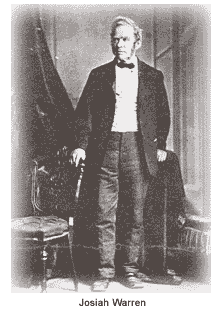
Someone recently suggested that a confederation of national guards would necessarily lead to civil war. However, a confederation of national guards would not lead to civil war. That would only be the case if the national guards were not confederated. What I'm advocating is handing over the regular military to the national guard, and having more local control. Have cross-training and coordination between the various national guards in the confederation, and allow soldiers to transfer from one national guard to another. And have certain standards across the board. This sort of system would leave us with a well-regulated military, but not an aggressive and imperialistic standing army as we have today. The military, consisting of confederated national guards, should be independent of the centralized State or federal government, to keep politics out of war. Politicians should not be allowed to send troops to invade another country. Instead, the national guard should be accountable to the regional government at the state/province level. Moreover, the military should have some degree of autonomy. The leadership within the military should be democratically elected by the soldiers themselves, and they should also have the power to democratically depose/remove people from leadership positions at whim. High ranking leaders should have to be approved by democratically elected delegates in the regional government, and positions above the local national guard level should be approved by the delegates at the federal level of government. The national guards would be confederated and have a mutual defense pact, so that they would have mutual obligations in case or invasion or imminent threats. With soldiers ultimately making military decisions, they would only fight when it is necessary, because soldiers aren't going to decide to leave their families and put their own lives at risk unless it is for a good cause, but many will willingly go to war to protect their friends and families. I believe that such a restructuring of the system is what is needed in order to guarantee peace. This would provide us with a military that is stronger than a bunch of loose militias but more libertarian than a conventional standing army under the control of politicians.
When it comes to communal rules or positive law (i.e. laws that are posited), I think they should be determined by delegative democracy, coupled with a layer of digital direct democracy, allowing the people to directly veto laws passed by the legislature. This should be done mostly locally, following the principle of subsidiarity, which holds that things should be done at the most local and smallest level capable of efficiently doing them, which does not necessarily mean that certain things won't be done at a federal level. These rules should be enforced by communal police forces, with officers chosen by lottery or sortition, on a rotational basis. If someone breaks the law and has to pay a fine, or whatever, they would be able to contest it in court. And there should be a separate and independent organization for the investigation of complaints against officers. If an officer does something wrong, there would be a trial in a civil court or tribunal with a democratically elected judge or arbiter.
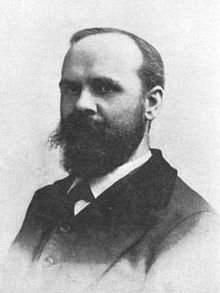
The protection of persons and property, the realm of natural law, on the other hand, should be handled by communal security/insurance agencies (let’s call it “securance”). These agencies should double as both security companies (to patrol and prevent crime, investigate criminal activities, serve as something akin to bounty hunters to catch criminals, etc. ) and as insurance agencies to insure persons and property against aggression and theft. People would pay a regular fee or tax for the service. If they are attacked and injured, the securance agency would have to pay out a claim to compensate them for any damages, medical bills, etc. If one is robbed, the securance agency would pay out a claim to replace or recompense the owner for the lost or damaged property. This is because there is no justice at all if there is no restorative justice. The whole point of justice should be to make things right again, as much as possible, rather than punishing the wrongdoer. The securance agency then investigates the crime and goes after the criminal, in order to force the criminal to reimburse the company for damages (to compensate them for the amount of the claim and for the time, effort, and legal fees associated with prosecution). After arrest by the securance agents, the suspect would be tried by independent courts on the basis of trial by jury. And they would only be obligated to pay the fines if the jury found them guilty and the court thought the amount was fair.
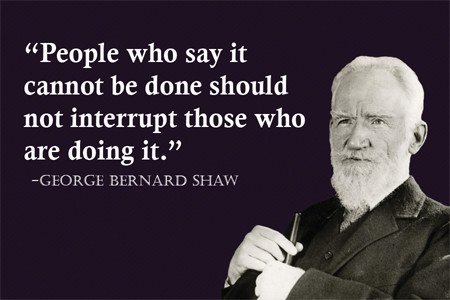
The Regulatory State
The Regulatory State would deal with taxing and regulating corporations. All industry would be regarded, in principle, as partially public property. Some amount of the value of industry is actually the result of public services. The public provides the roads, the currency, and the resources that allow industry to thrive. As a result, the community should have some share of ownership in every industry insofar as some of the wealth is generated by the community. A person is entitled to the entire product of their own labor, but not to any value or product contributed by the labor of others. Hence, the community is entitled to the value that it contributed, and so is due a share of corporate profits. The Regulatory State would be in charge of collecting corporate tax (the community’s share of profits) and depositing them into the public treasury.
The Regulatory State would also be in charge of fining or taxing corporations that pollute the environment. Something akin to the EPA would be run by the Regulatory State. Additionally, the Regulatory State would establish standards for education, healthcare, food safety, etc. Each of these tasks would be the duty of a separate agency within the Regulatory State.
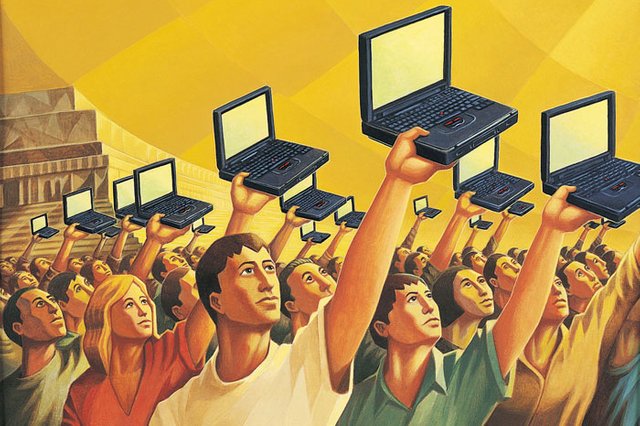
Comprehensive Counterbalanced Democracy
I like the ideas of democratic confederalism, libertarian municipalism, and cellular democracy. I lean more towards cellular democracy, but do differ from it on several points. The ideas of Leopold Kohr, Fred Foldvary, and Murray Bookchin have all significantly influenced my views. I hold that we should have participatory democracy at the most local level possible. When it comes to the level of cities, people should elect delegates for city council. And there should be delegates to regional or provincial councils and delegates at the national level. Governance should be done on a libertarian federalist and republican basis.
All systems of democracy need checks and balances to ward off tyranny. It strikes me that the checks and balances in our current system happen to be undemocratic. We have monarchical and oligarchical institutions inserted into the framework of what ought to be a democratic system. The Supreme Court, whose Justices are appointed by the President and confirmed by Congress, is supposed to be a check on the power of the Legislative and Executive Branches. People vote for Congress, which passes the law, but do not have any say in the appointment of the Supreme Court Justices, who ultimately can override Congress by declaring their laws unconstitutional. So, this check is undemocratic. The President serves as a little monarch. The Presidency is a monarchical institution superimposed upon a democratic system. Congress can pass a law through a deliberative and democratic process and the President can just veto it. Another despotic check on democratic processes! It is my contention that the checks on democratic processes ought also to be democratic. The ability to veto laws passed by legislature should be reserved for the people as a whole. There should be an element of digital direct democracy that allows the people to directly veto rules passed by Congress. Furthermore, the Presidency should be abolished altogether and replaced with a figurehead Prime Minister who represents the nation for diplomatic purposes but does not have any decision-making power themself. The old Athenian policy of choosing representatives via sortition or lottery should be revived. Candidates for political offices should be chosen by lottery, thereby eliminating career politicians. A certain number of candidates should be randomly selected, each having the ability to decline the position, in which case another candidate would be randomly selected in their place. Then, the people should vote and elect their representative or delegate from among the candidates randomly put forth. The delegates should be subject to representative recall. A digital directly democratic layer should be added, whereby the constituents can rate their representatives in an online poll, and the delegate should be automatically recalled and replaced whenever their popularity declines and they get an unfavorable rating in the polls. Voting for candidates should be done on the basis of ranked-choice voting (also known as “instant runoff voting” or “transferable vote”), which would eliminate the dilemma of having to choose between the “lesser of two evils.”
Conclusion
I have given a brief outline of the sort of libertarian social democracy that I now envision. This is quite different from the libertarian municipalist or anarchist model that I had previously advocated, although it still has much in common with it. I must note that there is certainly a lot of room for various particular models under the banner of libertarian social democracy. Dialectical minarchists (left-minarchists) and anarchists that identify as "libertarian social democrats" ought to be working together to propagate the idea of libertarian social democracy.

"The economics of the future are somewhat different. You see, money doesn't exist in the 24th century. The acquisition of wealth is no longer the driving force in our lives. Material 'needs' no longer exist. Poverty was eliminated on earth a long time ago and a lot of other things disappeared with it: hopelessness, despair, cruelty. We've eliminated hunger, want, the 'need' for possessions. People are no longer obsessed with the accumulation of 'things.' We've grown out of our infancy. The challenge is to improve yourself, enrich yourself. We work to better ourselves and the rest of humanity." - Star Trek: TNG
No.
The willful denial of human nature and nature in general is a deceit. That quote is literally an abomination against nature. How can any truth expect to be found when the first steps of the search begin on the treacherous ground of self deception?
Evolution is filled with pockets and periods of paradise. In them mutations accrete like a waste product with no function. Each branch seeks to transmit its payload like a curse onto future generations. When Darwin's razor inevitably arrives with cataclysm it mercy kills the diseased before the entire species is wiped from existence.
When architecting the fate of mankind, considerably more care should be used than the wisdom found between commercials.
"the wisdom found between commercials?"
that statement makes you unqualified to have a rational conversation
i envy your ignorance in self-assured ideals.
the idea that you are putting boundaries set by men who never saw a computer into your mind as some sort of fact and guideline to understanding mankind makes you useless to this conversation.
also, this type of thinking makes you my enemy.
good luck with this ancient school of thought
the self deception you dont see is finding beauty, solace and virtue in human selfishness.
selfishness is so inherent it need not be reinforced and should be actively controlled.
the blockchain tech is literally the antithesis of what you speak of.
you are literally using technology that proves your entire point wrong
I wasn't expecting a rational reply.